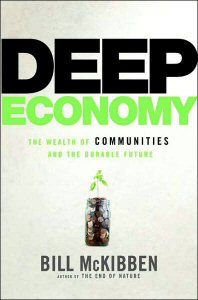Digressions aside, one does not need a healthcare management degree or prior health care experience for most post-MBA positions in health care. Most health care sectors are very interested in techniques from other industries, such as financial services, manufacturing, and retail, so non health care experience will actually be appreciated. Any process improvement skills, such as Six Sigma or the methodology of the week, will be appreciated. Additionally, direct to consumer marketing, communication, or even talking will be in demand as health care is moving from a whole sale model to a retail model. Consulting or finance is the exception where you probably need health care experience to distinguish yourself from all the others and well, asking why they call it an Emergency Room when it has more than one room, won't impress anyone.
As an MBA, you probably won't be performing a colonoscopy or prepping someone for surgeries so what kind of jobs do people do in health care?
- The pharmaceutical or biotech marketing is still the #1 source of jobs. And I'm not even including the growing number of medicinal marijuana dispensaries. Whether it's brand management or business development or old fashioned four P's marketing, MBA's are generally hired to explain why someone should buy a drug. The difference between the pharmaceutical and biotech industry is that the pharma is a more corporate environment while biotech is more of a start-up environment. As a result, more MBA's tend to gravitate towards biotech because anything associated with the word start-up sounds cool.
- Health insurance has the biggest range of MBA jobs. There are product manager, business development, strategy, marketing, finance, and operations positions. Companies range from national carriers like United, Aetna, and Cigna to local carriers like Harvard Pilgrim to integrated delivery systems like Kaiser Permanente. Health insurance probably looks more like a typical business in terms of organization and understanding of the MBA background.
- Health Care IT opportunities are always growing. For the last 10 years, people tell me that knitting is really starting to just become popular with guys. This has demonstrated that something can be up and coming and ready to burst on the national scene for a very long time. Biotech is like that as well as opportunities to use IT to improve health care delivery. Lots of promise that hasn't quite been delivered yet. GE has a suite of health care IT products ranging from imaging to Electronic Medical Records (EMR). EMR is the most established opportunities with Cerner and Epic being the largest players in the field. Personal Health Records (PHR) represent the next wave. Google is involved with a version of PHR's which is really more a data depository and doesn't have the consumer-driven aspects that let someone manage their own health which is a key part of the PHR. Web MD is the best known company in this field. Another part of the Healthcare IT sector is vendors that help hospitals, health plans, and physicians do their billing or claims processing more efficiently. Trizetto is a big player in claims processing systems for health plans and Athena Health is the one company that I know that's involved in physician billing. Essentially, there is a lot of IT opportunity to help the health care players bill more efficiently. Finally, social media is hitting health care led by media darling, Hello Health which uses social media in care delivery at a physician's office to supplement traditional ways of seeing your doctor.
- There actually are not a lot of MBA opportunities in care delivery even seniors. Organizations that deliver health care like hospitals, physician practices, or anything that serves the elderly have maybe one position in the entire organization for an MBA. Most are run by nurses or doctors and look for either direct operations experience or a clinical background. These organizations understand the value of an MBA but can't support the position within their administrative structure. Either a lot of networking or some background in health care delivery is really needed to get a position in one of these organizations
- Get familiar with government funding. Those that are trying to stop the government from taking over health care tend to forget that the government already funds a lot of health care. The funding for Federally Qualified Health Centers (FQHC) or community health centers increased during the Bush administration and will sky rocket during the Obama administration. These are clinics that make up the safety net by being paid whatever they need by Medicaid and using that money to see as many uninsured as possible. Next, state and local government look for private contractors to provide health care for everything from prisons to pregnant women. Organizations like Liberty Healthcare have made a business around this outsourcing. Finally, health plans can get additional funding for Medicare members who qualify for assistance programs so some organizations like Social Service Coordinators have created a business around signing up health plan member for these programs. An MBA who keeps track of legislation around health care funding and understands funding mechanisms will have no shortage of opportunities.




